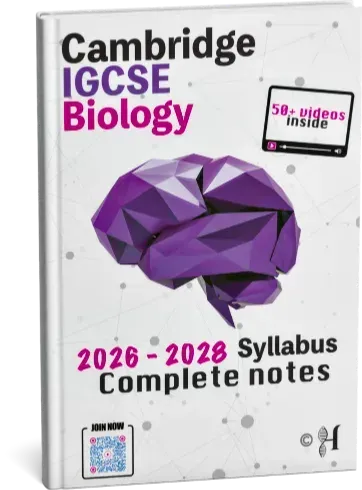Your Ultimate Guide to Ace your IGCSE Biology and Chemistry Paper 2 Exams
Tips from my 21 years teaching those two subjects

Navigating the IGCSE Chemistry Paper 2 can be a daunting task for many students. This 45-minute multiple-choice exam tests not only your knowledge of chemistry but also your ability to apply that knowledge effectively. Mastering the specific techniques for answering multiple-choice questions can significantly enhance your performance. In this guide, we'll explore detailed strategies and tips that will empower you to tackle the IGCSE Chemistry Paper 2 with confidence.
1. Understand the Exam Structure
Before diving into strategies, it's crucial to understand the format of Paper 2. This exam consists of 40 questions, each with four options (A, B, C, D), where only one answer is correct. The questions cover the full syllabus, including theoretical concepts, practical skills, and data interpretation. Familiarity with the exam structure will help you allocate your time effectively and prepare adequately.
2. Read Each Question Carefully
One of the most critical skills in answering multiple-choice questions is the ability to read each question thoroughly. Pay close attention to the wording, especially qualifiers such as "always," "only," "most," or "least." These words can significantly alter the meaning of the question. Underline or mentally highlight key terms to ensure you don’t overlook crucial details. A careful reading can often lead you directly to the correct answer.
3. Eliminate Wrong Answers
When faced with challenging questions, a systematic approach to eliminate obviously incorrect options can improve your chances. Often, two options can be ruled out quickly, which narrows your choices significantly. This technique is particularly useful when you're unsure of the correct answer; even a guess amidst fewer options can lead to a better outcome.
4. Use Knowledge of Trends and Patterns
Many questions in Paper 2 test your understanding of periodic trends and chemical properties. Familiarize yourself with key concepts such as reactivity, color changes, and states of matter at room temperature. For example, knowing that "noble gases have full outer electron shells" can help you quickly identify the correct answer when related questions arise. Regularly revisiting these concepts will enhance your confidence during the exam.
5. Apply Logic and Estimation
Some questions, especially those involving calculations, can be solved more quickly through estimation or recognising reasonable answer ranges. If you’re unsure of a calculation, try substituting each answer option back into the question to see which one fits best. This method can save you valuable time and help you avoid unnecessary errors.
6. Manage Your Time
Effective time management is crucial in a timed exam. Aim to spend no more than one minute per question on your first pass. If you encounter a particularly difficult question, mark it and move on; you can return to it later if time allows. Remember, there is no penalty for guessing, so never leave a question blank.
7. Practice with Past Papers
Regular practice with past and specimen papers is one of the best ways to prepare for the IGCSE Chemistry Paper 2. Familiarizing yourself with the question formats and recurring themes will help you feel more comfortable on exam day. After attempting these papers, review the mark schemes to understand the rationale behind the correct answers. This practice will also highlight areas where you may need further study.
8. Use the Periodic Table Effectively
During the exam, a copy of the periodic table will be provided. Utilize it to find atomic numbers, group trends, and electron configurations. Knowing how to read the periodic table efficiently can save you time and help clarify your understanding of various elements and their properties.
9. Check for Common Traps
Be mindful of distractors—answers that seem almost correct but miss a key point. Questions that appear straightforward may contain subtle nuances that can mislead you. Always double-check your reasoning and ensure that your chosen answer aligns with the question's requirements.
10. Improve Exam Technique
To maximize your performance, avoid getting stuck on any one question. If you're unsure, move on and return to it later. If you find yourself torn between two options that seem correct, reread the question carefully for any subtle distinctions that may lead you to the right answer.
Resources for Practice and Reference
To further assist your preparation, here are some valuable resources:
•Cambridge IGCSE Chemistry 0620/02 Specimen Paper (2023)
•Best Exam Help – IGCSE Chemistry 0620/22 Past Paper
•PapaCambridge – Chemistry 0620 Past Papers
•Physics & Maths Tutor – CIE Paper 2 Chemistry Past Papers
Conclusion
In summary, mastering the IGCSE Chemistry Paper 2 requires a combination of understanding the exam structure, practicing effective reading and elimination techniques, and applying your knowledge of chemistry strategically. By familiarising yourself with past papers and employing the strategies outlined in this guide, you can maximise your performance and approach the exam with confidence. Good luck!
Try a free Class
IGCSE and IAL Guide for 2025 - 2026 Exams















